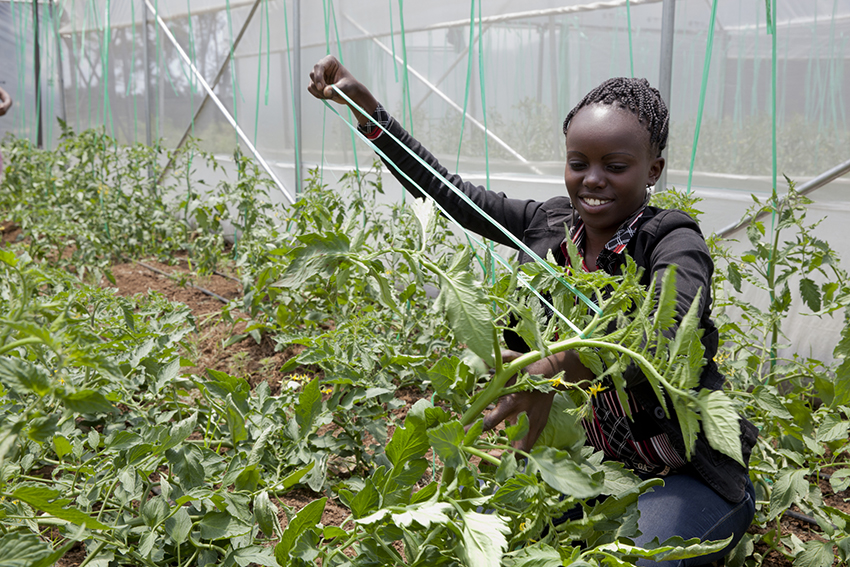
Photo Credit: Jessica Scranton/FHI 360
Four major famines have taken place so far in 2017, which has renewed attention on the urgent need to address food security globally. However, food security involves much more than responding to famines, and it is closely linked to factors such as governance, which plays a significant role in fragile states and developing countries. FHI 360 held a Facebook Live discussion on how integrating governance, agriculture and food security can benefit food security programs. The conversation was moderated by Gregory Adams, Director of the Locus Coalition at FHI 360, with FHI 360 experts Joseph Sany, Technical Advisor, Peacebuilding and Conflict Mitigation, and Annette Brown, Director, Research and Evaluation Strategic Initiative.
The conversation explores the definition of governance, which includes not just national and local governments, but also civil society and stakeholders at the grassroots level. Our experts also looked at the role that governance plays in food security, how integrated programming can address food security issues, the challenges such programming faces and specific examples of countries that have used integrated programs to strengthen the overall food supply chain. They also discuss the evidence base for this kind of integrated programming and the pressing evidence gaps when it comes to governance and food security.
Watch this dynamic discussion below.
LIVE: Greg Adams, Joseph Sany and Annette Brown discuss the interrelated aspects of governance and food security. #integrateddev
Posted by FHI 360 on Thursday, June 15, 2017
